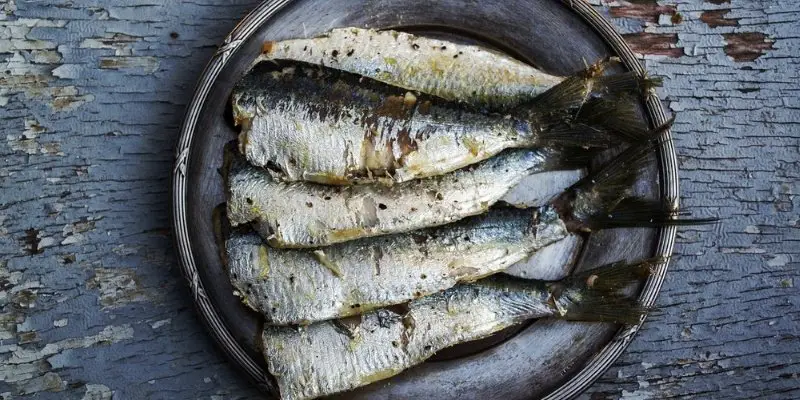It’s not that often when a delicious dog treat happens to be small in size, moderate in calories and also loaded with nutritional value. But that’s the exact case of sardines.
“Sardines may be small, but they’re mighty when it comes to pet nutrition. Since sardines are small, they tend to have far less mercury than larger fish, which makes them an ideal choice for people, too.” – Explains nutrition counselor Celia Kutcher.
But let’s dig deeper into the dogs and sardines relations.
Do you have a specific question about “Can dogs eat sardines” subject? Then use the table of contents below to jump to the most relevant section. And you can always go back by clicking on the black arrow in the right bottom corner of the page. Also, please note that some of the links in this article may be affiliate links. For more details, check the Disclosure section at the bottom of the page.
- Benefits of sardines for dogs
- Are sardines bad for dogs?
- What to know when it comes to serving sardines to dogs
- I’ve heard sardines were radioactive and filled with heavy metals…
- Can dogs eat sardines ….
- How about sardine oil for dogs?
- The best way of cooking sardines for dogs
- Are sardines good for dogs with allergies?
- Is it ok to feed my dog sardines every day?
- Sardines for dogs. Summary

Benefits of sardines for dogs
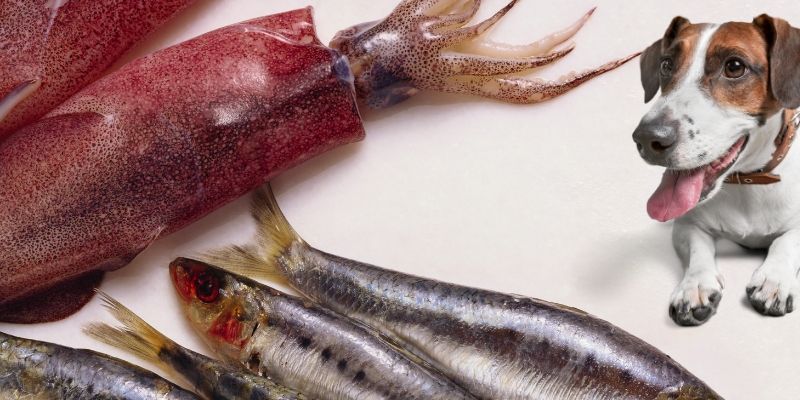
Sardines store quite an impressive quantity of Omega-3 fatty acids, Coenzyme Q10 (CoQ10), DHA, and EPA, which are attributed to brain health. CoQ10 promotes a healthy heart and lymphatic system.
Those fats are also participating in the brain development process, which makes it especially good for younger pups.
Overall that small fish is known to be beneficial for dog’s:
- Brain health
- Shiny coat and healthy skin
- Joint maintenance
- And even heart health

Are sardines bad for dogs?

One reservation when we are answering the question “Can dogs eat sardines?”
Skip sardines slatted in sauce–like oil, ketchup or mustard–and look for the options lowest in sodium.
“When buying sardines, make sure always to buy wild caught, packed in water. There’s no need for more oil, salt or any other ingredients — some of them could be harmful. Also, sardines should not be fed daily, as too much fish can form crystals in cats.” – Kutcher warns.

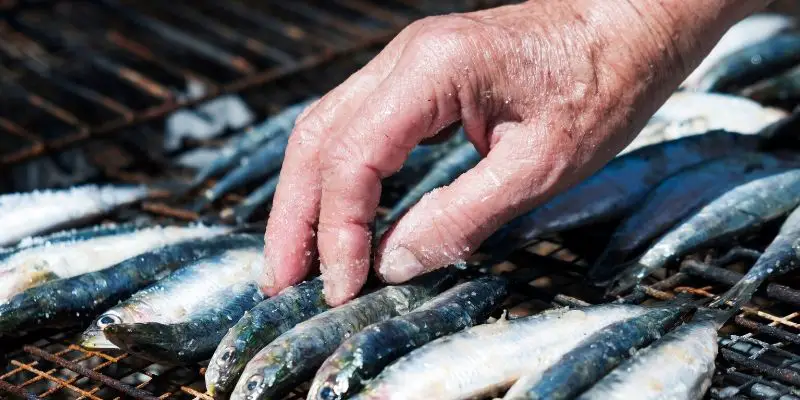
What to know when it comes to serving sardines to dogs
The next thing to consider when speaking sardines for dogs is that one little sardine holds about 25 calories and 175 mg omega-3 fatty acids. “Give them more proportionally when you have a larger pet,” – Kutcher advises.
In case you were wondering, you don’t have to be worried about the bones in sardines. They’re safe for your pup, and they’ll also supply some calcium.
I’ve heard sardines were radioactive and filled with heavy metals…

There’s this guy “Dr. Peter Dobias, DVM has 30 years of experience as a veterinarian” who’s running around the internet and seeding rumors that sardines are very radioactive due to unfortunate atomic bombs related events in Fukushima.
Radiation was so intense there then when you purchase the US produced sardines from your local supermarket let’s say in Austin, Texas, many years after you are still at risk, according to Dobias.
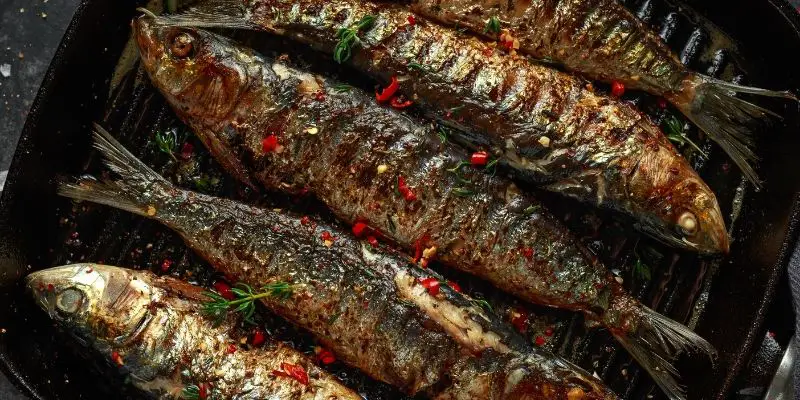
We did some digging, and it’s not more than a PR campaign to sell more HairQ tests to dog owners since those tests are one of the major products Dobias sells on his website.
I think the summary and results of testing performed by the FDA emphasizes that (“The lead U.S. agency testing seafood for contamination is the Food and Drug Administration or FDA. As of June 20, the FDA has tested 1,313 samples of food imported from Japan, including 199 seafood samples. Of those, just one—a sample of ginger powder—exceeded the level considered safe for consumption”.)
So, sardines are fine in radioactivity department.

Can dogs eat sardines ….
…in a can
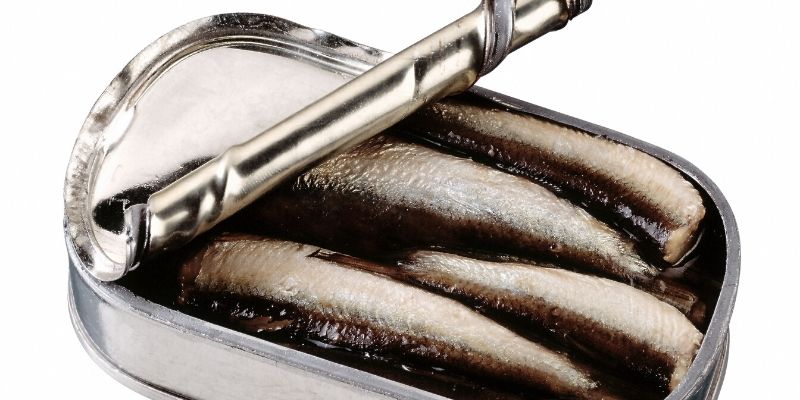
One advantage of the tinned variety is that the fish might be boneless. It is best to find them in plain water or olive oil with canned fish.
It is better to find the ones canned in plain water or olive oil. Some dogs may prefer raw, frozen, canned, or dried sardines.
Some pets may choose fresh, frozen, dried, or canned sardines.
…in spring water
Sardines in spring water with no additional chemical ingredients is probably one of the safest types of canned sardines to try out with your dog.
Avoid the options packed in corn, soy, sunflower, or other omega-6 rich oils.
…with bones
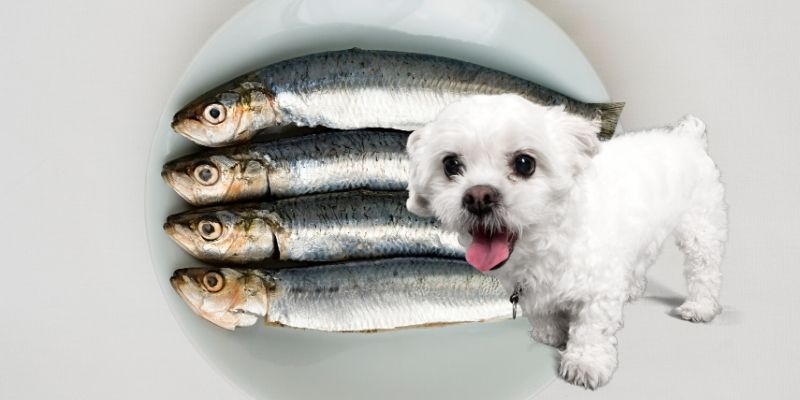
Since sardines are tiny and soft-boned, dogs can digest those bones easily. So can dogs eat sardines with bones? The answer is yes, you may not worry about removing those bones before treating your pet. But if you are still a bit worried you may try to get rid of the largest ones, e.g. the spine.
You might also like:
- Doghint’s secret guide on getting FREE dog food
- 9 most desirable gift ideas for dog owners
- Dog Subscription Guide. We really found one under $10.
…baked
Baking sardines would probably be too hard on all the minerals and nutrients contained in sardines. So you’d better stick with a fresh or very lightly cooked version (e.g., 2 mins of steaming or grilling)

…boiled
Just as with baking, the process of boiling would diminish the nutritional density of sardines. So you probably should avoid this method of cooking this particular fish.
…raw
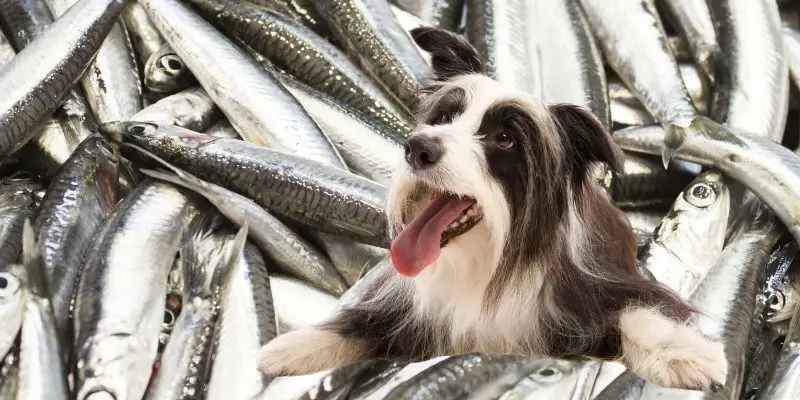
Ideally, you’ll want to go with wild-caught sardines. Thus you’ll be sure that you’re feeding the fish that haven’t been treated with antibiotics and growth hormones, which is how farmed sardines are raised.
…frozen
If you have a choice, you should always go with freshly caught and frozen sardines. Those won’t have additional ingredients that could potentially be harmful to your pet.
Another thing to mention: fresh or frozen sardines are often larger than canned. So that small pups might want it to be cut to make it easier for tiny mouths to eat.
…in olive oil
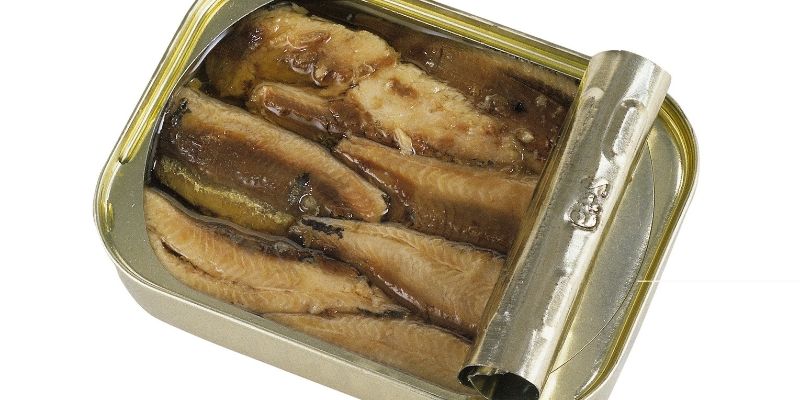
Most sardines in olive oil will have a bunch of additional preservatives. Lots of sodium, at the very least. And it will turn a nutritional treat into quite an unhealthy meal. Not to mention that fatty fish in fatty oil – is getting too fat for canine sensitive stomach.
…in tomato sauce
Just as with oiled option, sardines in tomato sauce are not the best possible treat for your dog.
There are a lot of additional potentially harmful ingredients to watch out for, and you won’t want to risk your dog’s health in this case.
…grilled

Can dogs eat sardines if these are grilled? Overall that type of cooking is generally fine. As long as you don’t put extra spices on top and keep the time of cooking to the minimum, thus the temperature won’t affect the nutritional density of sardines.

How about sardine oil for dogs?
It’s better to stick with the fish. The fats in the fish itself are way less likely to go sour than derived oils. So it doesn’t worth taking this risk if your pup can get the same fish oil nutrients from an actual fish.

The best way of cooking sardines for dogs
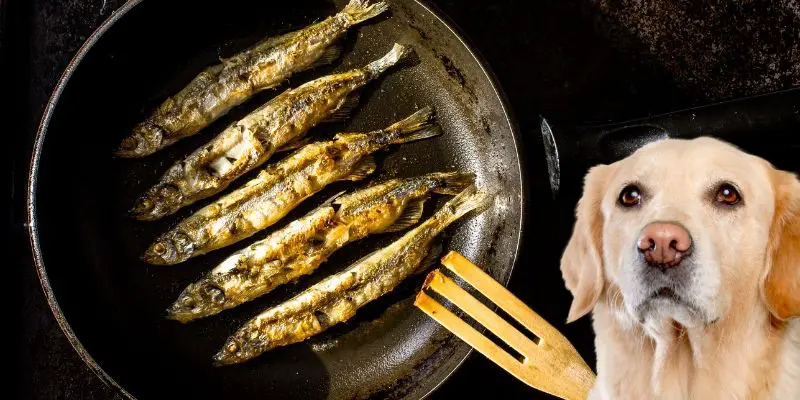
You can definitely cook the sardines, but the more you process it, the more likely you are to destroy valuable nutrients. But if it’s lightly steamed, it would be an ideal option for your dog. Don’t forget – NO SALT!

Are sardines good for dogs with allergies?
All dogs can have allergies, and even healthy foods can be the cause. Test your dog first with a small amount of sardine and watch out for any unusual reactions as you gradually introduce the fish to your pet’s diet.
Anything from chronic gas and vomiting to diarrhea might be a signal to call your vet.
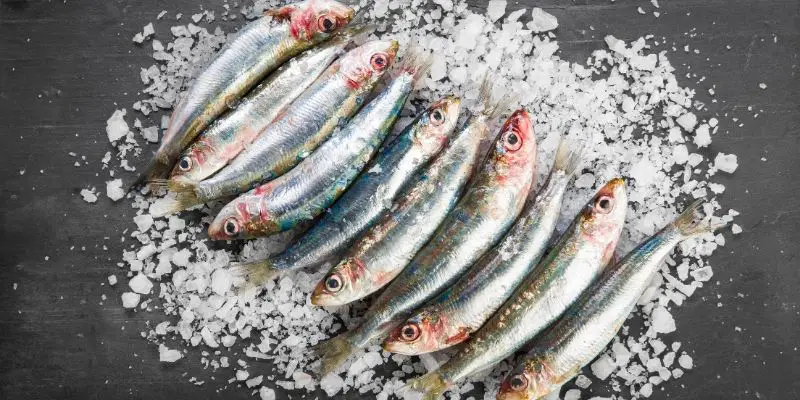

Is it ok to feed my dog sardines every day?
Dogs may appreciate sardines: as a part of their regular meal or as a rare treat.
But keep in mind to always begin gradually when you decide to give your pet any new foods (such as sardines).
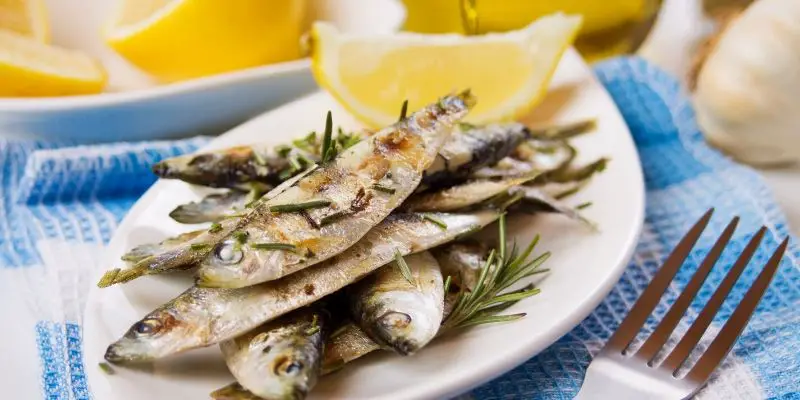
They must not cause an upset of the stomach, but it’s always better to be sure that your dog won’t get sick. And after pup’s body became aware of a new product, remember the golden rule of “moderation.”
If it’s too much, there’s nothing great about it. And giving your pet sardines daily is an excellent example of excessive.
Give your dog some sardines a few times a week. This fish can be mixed with typical dog food. It is a nice addition to the .

Sardines for dogs. Summary
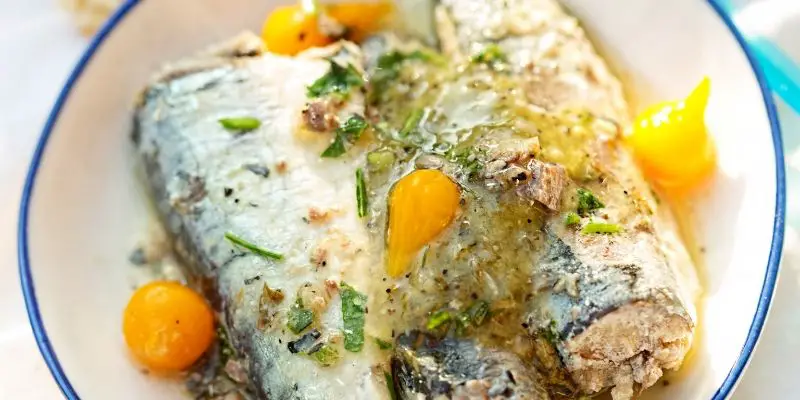
Sardines are a major source of protein, omega-3, and coenzyme Q10 fatty acids. Due to the small size sardines contain minimal quantities of mercury compared to larger fish.
Omega-3s enhance all health aspects, decrease inflammation and reduce the risk of disease.
Coenzyme Q10 is an outstanding supplement to growing pups for brain development and dental health. So, can dogs eat sardines, after all? All in all, this fish is an amazing food for your dog.
Credits: thanks for the cover photo to DanaTentis from Pixabay and Canva.

